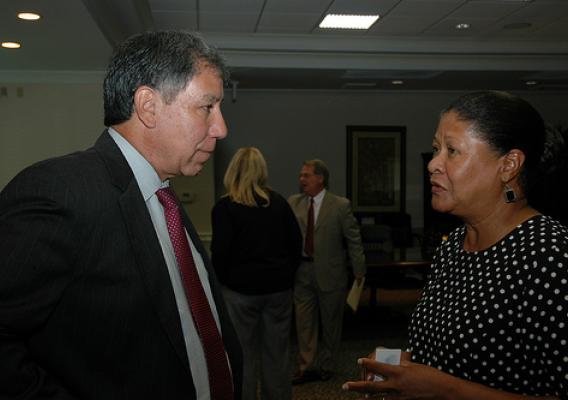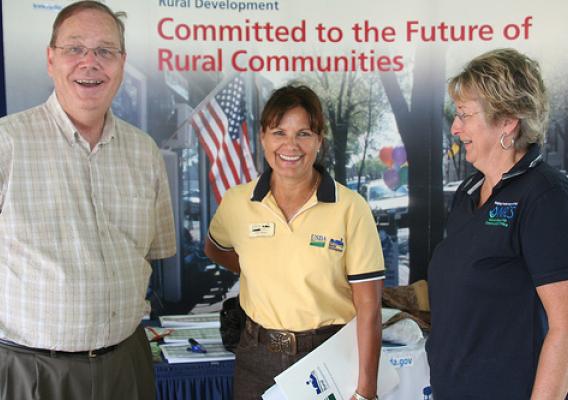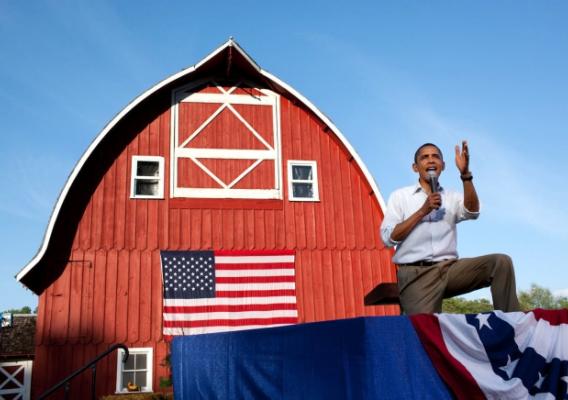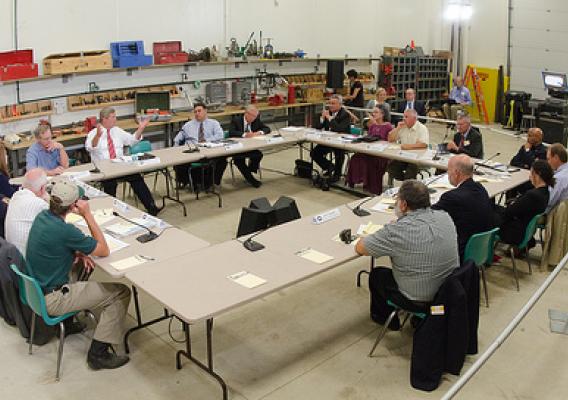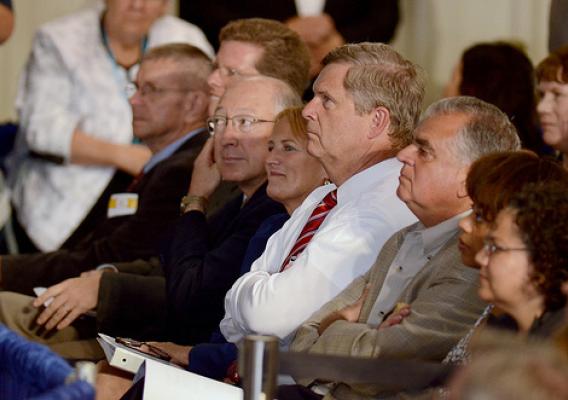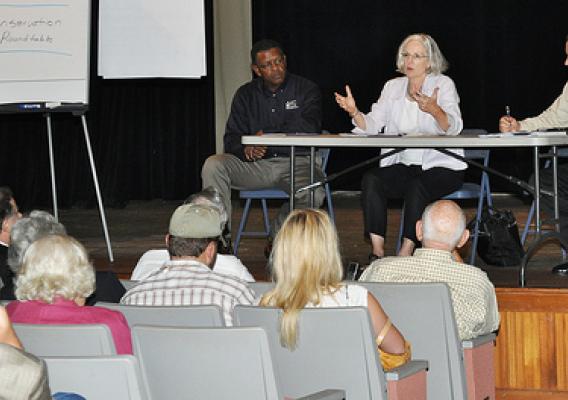Cross posted from the White House blog:
Today, I am hosting a forum focused on the rural economy at the Iowa state fair. But, Rural America has been in the spotlight all this week as I joined President Obama to travel across parts of Minnesota, Iowa and Illinois, visiting rural communities to discuss his Administration’s efforts to create jobs and drive economic growth. From investments in rural broadband to efforts to support small-business innovation, the President talked about his commitment to rural America – and he listened to what local residents had to say.
The centerpiece of his trip was the Rural Economic Forum, held Tuesday at Northeast Iowa Community College in Peosta. There, 200 small business owners, farmers, retirees, elected officials and others came together to discuss their ideas for a revitalized rural economy. I was pleased to participate in that forum, along with my Cabinet colleagues Housing and Urban Development Secretary Donovan, Transportation Secretary LaHood, and Administrator Mills of the Small Business Administration.

